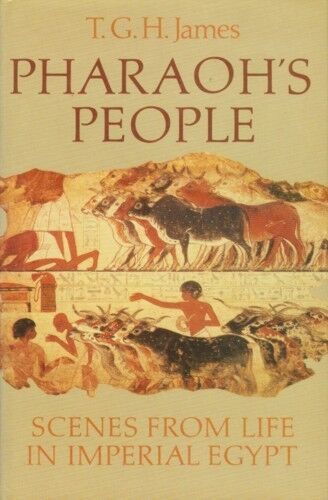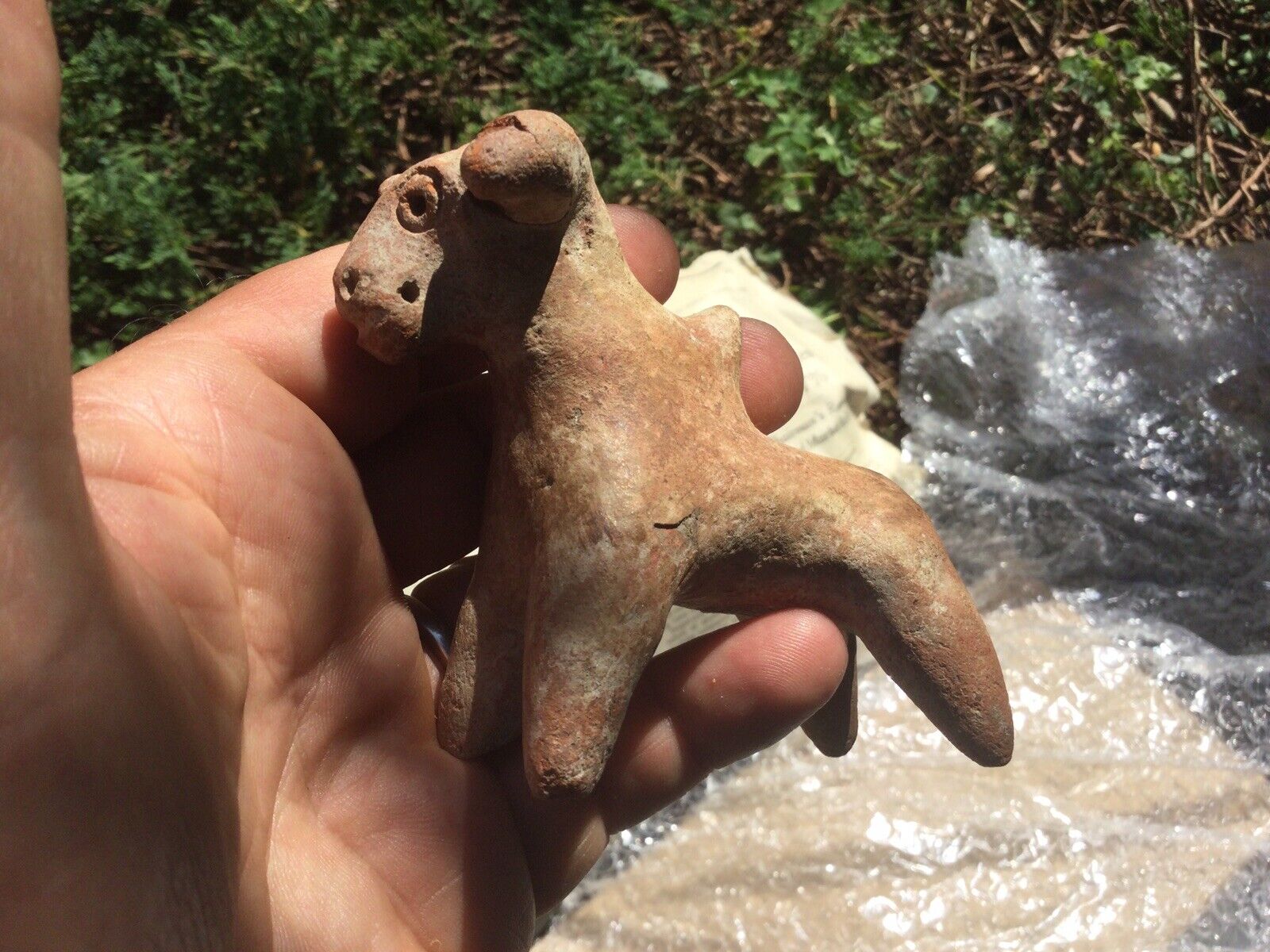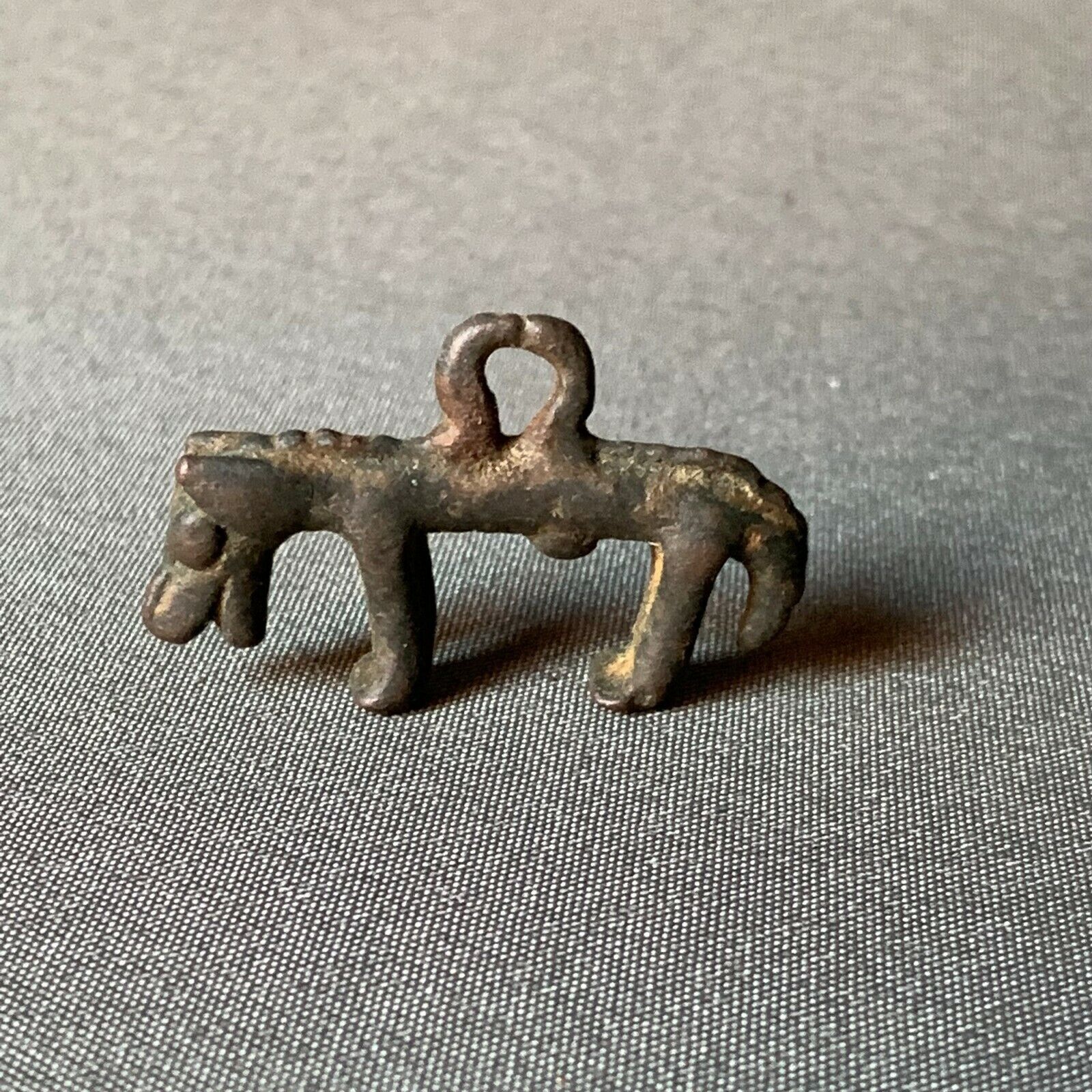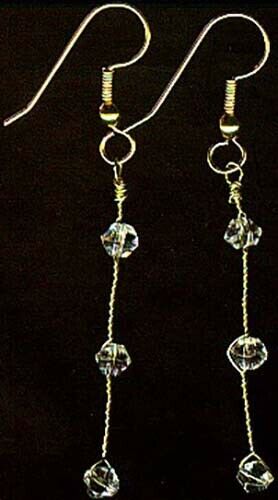-40%
Ancient Egypt Daily Life Depictions Murals Work Home Food Law "Pharaoh’s People"
$ 24.28
- Description
- Size Guide
Description
Pharaoh's People: Scenes from Life in Imperial Egypt by T.G.H. James.DESCRIPTION:
Hardcover: 282 pages. Publisher: University of Chicago (1984). Size: 8 x 5 x 1 inch; ¾ pound.
Popular interest in ancient Egypt has too often tended to focus on the deeds of rulers, great nobles, and priests. In "Pharaoh's People", T.G.H. James by contrast examines the daily working lives of ordinary Egyptians; bureaucrats and scribes, builders and farmers; carpenters and jewelers. What sort of houses did they live in and how were they furnished? How was justice administered? What do we know about their family relationships, their rivalries and quarrels, their hopes and dreams, and the daily minutiae of their lives? James has drawn on the evidence of paintings and inscriptions from tombs and temples, from official archives, private correspondence, accounts, and dispatches. As he reveals the fascinating intricacies of daily life under the pharaohs, we realize how much our own lives have in common with those who worked along the Nile nearly four thousand years ago.
CONDITION: VERY GOOD. Lightly read, very clean hardcover w/dustjacket. University of Chicago (1984) 282 pages. Inside the book the pages are pristine; clean, crisp, unmarked, unmutilated, tightly bound (I would guess it was read once by a reader with a fairly light "footprint"). HOWEVER the fore-edge surfaces of the block of closed page edges possess tiny tan-colored age speckles (known as "foxing"), visible only when book is closed, not to individual pages, only to the mass of closed page edges (the fore-edge surface). Dustjacket evidences modest edge and corner shelfwear, principally in the form of a bit of rubbing to the corners, a little rubbing and cminute chips/tears to the spine head and heel. There are also two very small, quarter inch closed (neatly mended) edge tears to the top edge of the front side of the dustjacket, and a half inch closed edge tear to the lower edge of the backside of the dustjacket, near the lower open corner, liekwise neatly mended. Overall it is quite clean and presentable. Beneath the dustjacket the covers evidence4 only very slight, almost imperceptible edge and corner shelfwear with no blemises meriting note. Though given the modest shelfwear to the dustjacket and the fact that the book has clearly been (lightly) read, the book falls a bit short of being a "shelf trophy". Nonetheless it is a clean, presentable, sturdy, and only lightly read book. Satisfaction unconditionally guaranteed. In stock, ready to ship. No disappointments, no excuses. PROMPT SHIPPING! HEAVILY PADDED, DAMAGE-FREE PACKAGING! #1811.2f.
PLEASE SEE IMAGES BELOW FOR SAMPLE PAGES FROM INSIDE OF BOOK.
PLEASE SEE PUBLISHER, PROFESSIONAL, AND READER REVIEWS BELOW.
PUBLISHER REVIEW
:
REVIEW: In "Pharaoh's People", T.G.H. James examines the daily working lives of Egyptians lower down the social scale: bureaucrats, scribes, craftsmen, and workers of the land. James has drawn on the evidence of paintings and inscriptions from tombs and temples, from official archives, private correspondence, accounts, and dispatches. Most of the texts have been newly translated for this book and, in examining them the author brings to life the fascinating intricacies of daily life under the Pharaohs.
Table of contents: The Written Record and its Validity * The Vizir and His Role * Justice for Everybody * The Bucolic Mode * Literacy and Status * The Scribe in Action * Craftsmen in Metal and Wood * A Desirable Residence * Domestic Economy * Brief Chronology * Select Bibliography.
T. G. H. James is the Keeper in the Department of Egyptian Antiquities at the British Museum, and a fellow of the British Academy. He is the author of "Howard Carter".
PROFESSIONAL REVIEWS
:
REVIEW: James is a former keeper of Egyptian antiquities at the British Museum and author of numerous publications on ancient Egypt. In this study, originally published in England in 1984, surviving Egyptian texts and tomb paintings are used to reconstruct various aspects of daily life and society "during the central point of that...civilization, the mid-Eighteenth Dynasty (1500-1400 B.C.), a period for which, in Egyptian terms, there is abundant evidence." In the introduction and first chapter, James carefully alerts the reader to the nature of that evidence, indicating the differences in content between official carved hieroglyphic inscriptions and the documents and letters handwritten on the job in hieratic script on papyri and pottery fragments. The titles of the principal chapters indicate the topics covered: "The Vizier and His Role," "Justice for Everybody," "The Bucolic Mode," "Literacy and Status-`Be a Scribe!'," "The Scribe in Action," "Craftsmen in Metal and Wood," "A Desirable Residence," and "Domestic Economy." This fully referenced text is written for the non-specialist and includes a good, basic bibliography. Highly recommended for all.
REVIEW: This study examines the daily working lives of Egyptians low down on the social scale: bureaucrats, scribes, craftsmen and workers of the land. What sort of houses did they live in and how were they furnished? How was justice administered? How were public records kept? And how was business conducted in a thriving economy largely based on barter? T.G.H. James has drawn on the evidence of paintings and inscriptions from tombs and temples, from official archives, private correspondence, accounts and dispatches. Most of the texts have been newly translated for this book and, in examining them, the author aims to bring to life the intricacies of daily life under the Pharaohs. "Pharaoh's People" is a fine book worthy of recommendation to anyone. Detailed and lucidly written, the depiction of Egyptian life is both accurate and convincing.
READER REVIEWS
:
REVIEW: A wonderful overview of everyday life in New Kingdom Egypt. For anyone interested in knowing how was it like to live under the rule of the great New Kingdom Pharaohs of Egypt, this is the book. With grace and elegant style, Dr. James gifted us with a wonderful overview of everyday life taking as evidence the registers from tomb and temple wall paintings and inscriptions, from which he has taken nice and amusing "bites of reality". There are texts from private and official letters and business documents; everything was masterly handed by the great British Egyptologist, so as to let us recover a lively glimpse of ancient Egyptians and their way-of-life in those golden ages.
REVIEW: This study focuses less on the lives of the kings and their glorious achievements, and more on the 'less-than-great'. James looks at the daily lives of the ordinary Egyptian during the mid-18th Dynasty (1500-1400 B.C.), at his home, work and relationships; builders, farmers, scribes, craftsmen, bureaucrats are all included. He uses a variety of sources including wall paintings, inscriptions, tombs and temples, archives, accounts and private correspondence. The book possesses illustrations, brief chronology, select bibliography, and index.
REVIEW: What is the truth, with regard to the way the ancient Egyptians represented themselves in texts and images? This is one of the underlying themes of Pharaoh's People by T.G.H. James, a book that has retained much of its freshness in the two decades since first publication. 'The desire to record great and glorious deeds is an understandable human weakness and the ancient Egyptians were no more reticent than others in proclaiming their victories while disguising, or ignoring, their failures,' writes James in the introduction. During the years since the first appearance of this book, the term 'spin' has been introduced for the modern version of this human attribute, simply its latest description. The victories and failures described in this book are not the prerogative of the king or his immediate family but of "ordinary Egyptians"; although the majority are perhaps extraordinary in that they were literate and sufficiently wealthy to create; or rather, have created for them visual and textual records.
The appeal of "Pharaoh's People" lies in the down-to-earth approach of the author, who uses his vast knowledge to breathe life into a text which is fundamentally socio-economic in approach. His consideration of the line marking the division between the 'proclamation of victories' versus the 'truth' is a necessary and important one. For examples he uses the words of Ramesses II on Kadesh and Amenhotep II on his athletic skills to suggest that elements of truth lie somewhere within these embellished texts, otherwise: 'Once confidence is shaken the questioning of every fact, every detail, tends to follow, and the use of the texts as source material for history is distrusted. It should not be so, and it must not be so. The written records of an ancient culture must form the primary source for the history of the culture. If they are held to be a tissue of lies or, at least, a romantic account of what may have happened in the past, then they are good for little more than the story-book.'
The content of each chapter is clearly described in each chapter title, examples being 'Justice for Everybody', 'The Bucolic Mode', 'Literacy and Status' and 'Craftsmen in Metal and Wood', each examining sections of Egyptian society, with occasional comparisons with later groups. The mysteries of the Egyptian system for exchanging goods is dealt with practically. It worked, however strange it appears to the modern mind. Indeed it still works for some societies and for some groups within western society who have their own separate value system.
New and more detailed commentaries on aspects such as the literate community at Deir-el-Medina have superceded "Pharaoh's People", but it would still provide an excellent starting point for anyone wishing to understand, in particular, literacy and how this affected and reflected status. One is left with a feeling for the 'voiceless' people within ancient Egyptian society, the non-literate and poor. These we see only through the eyes and words of their overseers, as in the case of one scribe whose document James describes as 'chilling': 'In the end it was the peasant, the field-worker, who bore the brunt of ill-directed enthusiasm or plain malicious zeal [of foreman or scribal overseer].'
SHIPPING & RETURNS/REFUNDS
: We always ship books domestically (within the USA) via USPS
INSURED
media mail (“book rate”). Most international orders cost an additional .99 to .99 for an
insured
shipment in a heavily padded mailer. There is also a discount program which can cut postage costs by 50% to 75% if you’re buying about half-a-dozen books or more (5 kilos+). Our postage charges are as reasonable as USPS rates allow.
ADDITIONAL PURCHASES
do receive a
VERY LARGE
discount, typically about per book (for each additional book after the first) so as to reward you for the economies of combined shipping/insurance costs.
Your purchase will ordinarily be shipped within 48 hours of payment. We package as well as anyone in the business, with lots of protective padding and containers. All of our shipments are fully insured against loss, and our shipping rates include the cost of this coverage (through stamps.com, Shipsaver.com, the USPS, UPS, or Fed-Ex). International tracking is provided free by the USPS for certain countries, other countries are at additional cost. We do offer U.S. Postal Service Priority Mail, Registered Mail, and Express Mail for both international and domestic shipments, as well United Parcel Service (UPS) and Federal Express (Fed-Ex). Please ask for a rate quotation. We will accept whatever payment method you are most comfortable with.
If upon receipt of the item you are disappointed for any reason whatever, I offer a no questions asked 30-day return policy. Send it back, I will give you a complete refund of the purchase price; 1) less our original shipping/insurance costs, 2) less non-refundable PayPal/eBay payment processing fees. Please note that PayPal does NOT refund fees. Even if you “accidentally” purchase something and then cancel the purchase before it is shipped, PayPal will not refund their fees. So all refunds for any reason, without exception, do not include PayPal/eBay payment processing fees (typically between 3% and 5%) and shipping/insurance costs (if any). If you’re unhappy with PayPal and eBay’s “no fee refund” policy, and we are EXTREMELY unhappy, please voice your displeasure by contacting PayPal and/or eBay. We have no ability to influence, modify or waive PayPal or eBay policies.
ABOUT US
: Most of the items I offer come from the collection of a family friend who was active in the field of Archaeology for over forty years. However many of the items also come from purchases I make in Eastern Europe, India, and from the Levant (Eastern Mediterranean/Near East) from various institutions and dealers. Though I have always had an interest in archaeology, my own academic background was in sociology and cultural anthropology. After my retirement however, I found myself drawn to archaeology as well. Aside from my own personal collection, I have made extensive and frequent additions of my own via purchases on Ebay (of course), as well as many purchases from both dealers and institutions throughout the world - but especially in the Near East and in Eastern Europe. I spend over half of my year out of the United States, and have spent much of my life either in India or Eastern Europe. In fact much of what we generate on Yahoo, Amazon and Ebay goes to support The Hermitage Museum in St. Petersburg, as well as some other worthy institutions in Europe connected with Anthropology and Archaeology.
I acquire some small but interesting collections overseas from time-to-time, and have as well some duplicate items within my own collection which I occasionally decide to part with. Though I have a collection of ancient coins numbering in the tens of thousands, my primary interest is in ancient jewelry. My wife also is an active participant in the "business" of antique and ancient jewelry, and is from Russia. I would be happy to provide you with a certificate/guarantee of authenticity for any item you purchase from me. There is a fee for mailing under separate cover. Whenever I am overseas I have made arrangements for purchases to be shipped out via domestic mail. If I am in the field, you may have to wait for a week or two for a COA to arrive via international air mail. But you can be sure your purchase will arrive properly packaged and promptly - even if I am absent. And when I am in a remote field location with merely a notebook computer, at times I am not able to access my email for a day or two, so be patient, I will always respond to every email. Please see our
"ADDITIONAL TERMS OF SALE."










